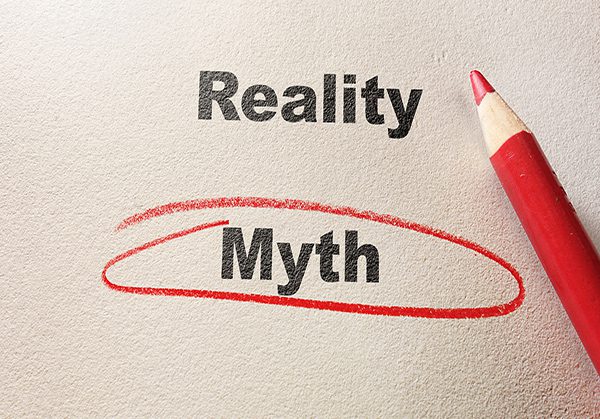 I get asked this a lot because I choose to identify as a mythicist, even though I am not what a lot of people think of when they consider the mythicist position. Maybe I shouldn’t be using the term, but I’ll explain below why I do it and why I don’t really have a horse in this race.
I get asked this a lot because I choose to identify as a mythicist, even though I am not what a lot of people think of when they consider the mythicist position. Maybe I shouldn’t be using the term, but I’ll explain below why I do it and why I don’t really have a horse in this race.
There was another video put up with Paulogia and Matt Dillahunty and I think it’s time I explained it, once and for all. I’ll see you below the fold.
Here’s the video first, if anyone wants to go and watch.

Now I understand at least some of what Matt and Paul say, but you notice something that I’ve pointed out many times before. They are accepting that Jesus existed, not because they have any evidence to support it, but because they want Christians to talk to them. It’s an ulterior motive that I simply do not have. Both of them are trying to make a buck off of interaction with Christians. Matt, especially, since a large part of his financial strategy is debating theists live. He can’t afford to piss them off. I don’t really know what Paul does, but I would assume he needs that interaction too, perhaps to a lesser degree.
 Myself, I don’t. I’m not in this for the money. I’ve said the same thing about people like Bart Ehrman for a long time. The reason they do what they do, as far as I’m concerned, has to do with their financial well-being. I don’t have to worry about that. It’s why I call a spade a spade and don’t care if anyone likes it.
Myself, I don’t. I’m not in this for the money. I’ve said the same thing about people like Bart Ehrman for a long time. The reason they do what they do, as far as I’m concerned, has to do with their financial well-being. I don’t have to worry about that. It’s why I call a spade a spade and don’t care if anyone likes it.
Let’s get down to the mythicism thing then. I always ask, when the religious make claims about Jesus, what “Jesus” they’re talking about. Is it the magical man-god that they think did miracles and rose from the dead? Is it a potential real person or collection of people upon whom the myths of godhood were posthumously draped? What do you actually mean?
 The magical Jesus was plainly a myth. Based on the evidence that we have at hand, none of that stuff ever happened. Faith doesn’t matter. Only facts do. I have no problem saying, again, based on what we know, that provisionally, that was just a myth. If something comes up down the road, I’ll reconsider my position. The magical man-god Jesus was never real.
The magical Jesus was plainly a myth. Based on the evidence that we have at hand, none of that stuff ever happened. Faith doesn’t matter. Only facts do. I have no problem saying, again, based on what we know, that provisionally, that was just a myth. If something comes up down the road, I’ll reconsider my position. The magical man-god Jesus was never real.
But what about the other possibility? Could there have been a real person that gave rise to all of the mythology? Sure, but I’m not interested in what could have been. I care only about what is. We have to look at the evidence that we have and determine what is actually supported and, whether anyone likes it or not, a real Jesus isn’t it.
Paulogia said in the video that some elements of the story make it seem more likely to him that there might have been a real Jesus. Might have doesn’t mean was. The author of Matthew wrote, in Matthew 2:3 that “He went and lived in a town called Nazareth. So was fulfilled what was said through the prophets, that he would be called a Nazarene.” There isn’t an actual prophecy of that anywhere in the existing Old Testament, but that doesn’t mean much. The Old Testament was canonized somewhere between 400BCE and 200CE, nobody really knows for sure, and there were probably stories circulating around, from books and teachings that were not included, that the Messiah would come from Nazareth, or be a Nazarene, there are lots of different interpretations and the author of Matthew simply threw it into his Gospel, like he did with so many other elements, just to make Jesus look more reasonable.
 Unfortunately, other stories said the Messiah would come from the tribe of Bethlehem. Yes, it was a tribe, not a town. Go read Micah 5:2, which says “But you, Bethlehem Ephrathah, though you are small among the clans of Judah, out of you will come for me one who will be ruler over Israel, whose origins are from of old, from ancient times.” The Gospel writers got it wrong and that’s why they wrote it in. It’s painfully easy to see where both could be inventions by the later faithful, over a messianic figure that never actually existed.
Unfortunately, other stories said the Messiah would come from the tribe of Bethlehem. Yes, it was a tribe, not a town. Go read Micah 5:2, which says “But you, Bethlehem Ephrathah, though you are small among the clans of Judah, out of you will come for me one who will be ruler over Israel, whose origins are from of old, from ancient times.” The Gospel writers got it wrong and that’s why they wrote it in. It’s painfully easy to see where both could be inventions by the later faithful, over a messianic figure that never actually existed.
The problem that we have is the entire story of Jesus has been so completely mythologized that there’s no way to tell if any of the story elements represented reality. Was Jesus born in Nazareth? We don’t know. Was Jesus born in Bethlehem? We don’t know. Was Jesus born at all? We don’t know.
 Ultimately, the only thing that we can say about the Jesus story, either magic man-god or potentially real person, is that the whole thing has been mythologized to the point that we cannot tell what parts, if any of it, ever happened. Thus, I am a mythologist because there’s nothing that we can look at for either position that suggests a reality post-belief.
Ultimately, the only thing that we can say about the Jesus story, either magic man-god or potentially real person, is that the whole thing has been mythologized to the point that we cannot tell what parts, if any of it, ever happened. Thus, I am a mythologist because there’s nothing that we can look at for either position that suggests a reality post-belief.
I’m not saying that Jesus didn’t exist. I’m not saying that he did. I’m saying that we have no evidence of any kind to go on and thus, I cannot take a firm position on either side. The stories told about Jesus are indistinguishable from myths. Come back when you have something better.
Ultimately, it’s the same position I take with atheism. I have no evidence to prove anything on either side. I am not saying gods do exist, I am not saying gods don’t exist, I am saying I have no convincing evidence for either side. Without evidence, I will not believe. That goes for Jesus too. At least I’m being honest and consistent.
A “real” Jesus does us no real good unless he was a magical man-god that did miracles and rose from the dead. So we got nothin based on the current demonstrable evidence.
Do you understand this quote from Campbell (below). Does he just mean that if you believe then it has value?
“The psychotic drowns in the same waters in which the mystic swims with delight.” ― Joseph Campbell, Psychology of the Future: Lessons from Modern Consciousness Research
It seems to me a mystic is even more of a nutter than a fundamentalist?
Yet they don’t care about reality. They just want their ego stroked. Therefore, they just assume that everyone is talking about a magical man-god, even when they pointedly are not, because it’s what they want to believe is true.
It’s why having conversations with these people is impossible.
impossible ―💯%✔